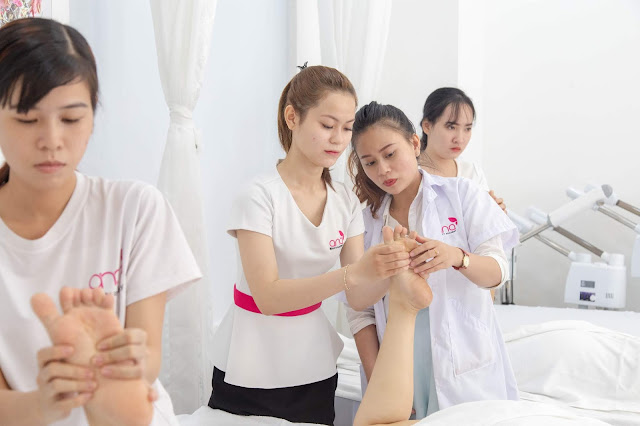Diabetes Worst-Case Scenario, Lead To Amputations
Diabetic Foot Care Recommendations
If you have diabetes information about how to manage your condition is vital to your well being. Reduce your risk of infection or amputation by incorporating these Diabetic Foot Care Recommendations.
 |
| Photo by Trường thẩm on Unsplash |
If you don't look after your feet you run the risk of developing sores or infections that could, in the worst-case scenario, lead to amputations. As happened to my father-in-law. Reduce your risk of infection or amputation by incorporating these Diabetic Foot Care Recommendations.
1) Check your feet daily - especially if you have low sensitivity or no feeling in your feet. Sores, cuts, and grazes could go unnoticed and you could develop problems leading to amputations.
2) Don't go around barefoot, even indoors. It's easy to tread on something or stub your toes and cut yourself. Protect your feet with socks/stockings and
shoes/slippers.
3) Be careful if you have corns or calluses. Check with your doctor or podiatrist the best way to care for them.
4) Wash your feet daily in warm, NOT HOT water. And don't soak your feet (even if you've been standing all day) because it could dry your skin and form cracks or sores.
5) Take extra care to dry your feet completely, especially between your toes. These are natural moisture traps - leaving them damp or wet could create all sorts of problems.
6) Exercise your legs and feet regularly. Even when sitting you can rotate your ankles; wiggle your toes or move your legs up and down. These all keep your blood circulation flowing and helps to minimize the risk of foot problems.
7) Get your feet professionally checked, at least once a year, for sensitivity and signs of any problems. You can usually arrange this when you have your annual check-up for your AC1 levels (blood glucose levels over a 3-month period), blood pressure and cholesterol.
Take constant care of your feet. Get help from a relative or professional; Doctor, diabetic nurse or podiatrist if you are not able to bend when trimming nails or checking for sores. Taking these simple actions will help you reduce the risk of painful problems.
Thanks for reading...





No comments